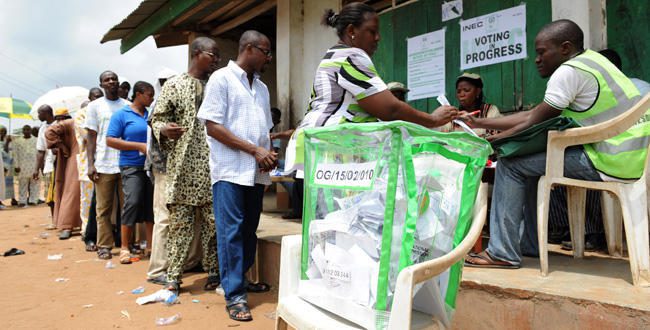Political Issues
Effective Democracy: Voter Right Or Right Voter, My Argument -By Chido Ahumibe

Events around the world and here at home lead me to continuously ponder the absurdities of modern society. In particular, I wonder about the neo rights we have fashioned for ourselves and how they came to be. What logical defence there is for them and how universal they really are, are not or should be.
The near-instantaneous, unpleasant aftermath of Brexit for Britons got me questioning the truth behind the sentiment of the right to vote. Is there really such a right and should there be? What actually is the nature of this right as compared to other fundamental rights? Who is the creator of this right?
Deciding the fate of a nation by whatever means is a solemn task with grave consequences for all. In effect, such a task should be accorded all the seriousness it deserves to ensure the best outcome in the end. A similar level of seriousness attends the task of decision making for corporations as well. And since such decisions can also have far-reaching consequences for all who are dependent on the corporation, this task, to my mind, is usually not left to the generality of staff with the facility of the vote as the instrument of decision making. What obtains in the life of corporations is that you have a select team of individuals, with vast experience and wide-ranging knowledge of industry, that presides over decision making on behalf of everyone. This responsibility at once makes it quite possible to hold this body to account, in the event that its decision backfires.
There currently appears to be a cycle of vote, regret, and vote again making the rounds across the globe. From Brexit that sought to pull the UK out of Europe to the American elections that brought President Trump to the White House, and the Nigerian elections that swept away a much-maligned President Jonathan and enthroned in his stead, President Buhari, who is at the moment in the eye of a major political storm. The one common element that trailes all of these voting events is widespread voter dissatisfaction to the extent that one is compelled to wonder, in view of the spread of disenchantment with the outcomes, just who did the voting since democracy, it is said, is a game of the minority having their say while the majority have their way.
With Brexit, the conclusion – in the light of present realities – could only possibly be that the vast majority of voters in the referendum had absolutely no clue what it was they were voting for. They were merely exercising their right to vote. This then raises the question of whether the right to vote is sufficient qualification for actually casting a vote.
The mantra here in Nigeria is usually one-man-one-vote and I think this is a classic case of ruthless egalitarianism resulting in passive injustice: it may be fair to give every man the vote; it certainly isn’t fair to give every man a vote. The reason for this is simple. We don’t all hold equal stakes in the life of the nation. It is therefore illogical that we hold equal vote.
The man who owns a multi-billion-naira business and employs a significant number of citizens and pays huge sums into government coffers in personal income and corporate tax, for instance, certainly holds a greater stake than, say, a professional bootlegger with no one but self to worry about and who pays no tax at all to the government. When it comes to elections, the tycoon is less likely to be influenced by parochial considerations or ‘stomach infrastructure’ and is better positioned to make an informed judgement on who to vote. One-man-one-vote however ensures that such well-reasoned positions matter little as the tycoon is by no means the majority. And so the cycle of electoral gloom continues.
This was probably the reason the founding fathers of America established that ingenious democratic invention called the electoral college. But not even that seems to have helped the American electorate much in the present. Perhaps this is because, again, voter right has taken precedence over right voter. American comedian, Chris Rock, once joked in the run up to the Obama/McCain elections that when you asked a certain section of American society why they would vote for who, they said, ‘He spoke to my issues.’ The other section merely said, ‘He black!’
To determine which students are eligible to attend which colleges we conduct standardised tests; to determine which individuals are fit to practise which professions, we conduct professional certifications; to recruit football players for national teams or club sides, we conduct trials: never mind that none of these activities has as far-reaching implications for our collective welfare as determining which individual is fit to lead a nation as president. Yet when it comes to the latter, at least in the Nigerian situation, all that seems to be necessary is the right of individuals to vote, encapsulated in the possession of a piece of plastic obtained without the least screening for eligibility to possess it or to use it. Still we wonder why democracy has a knack for throwing up wrong leaders.
The casting of a vote is a duty and not a right. Bundled with that duty is the responsibility to enlighten oneself on the ramifications of the vote, failing which the noble thing to do would probably be to abstain from voting, in order not to voice a telling opinion in a matter on which one is ill informed.
















